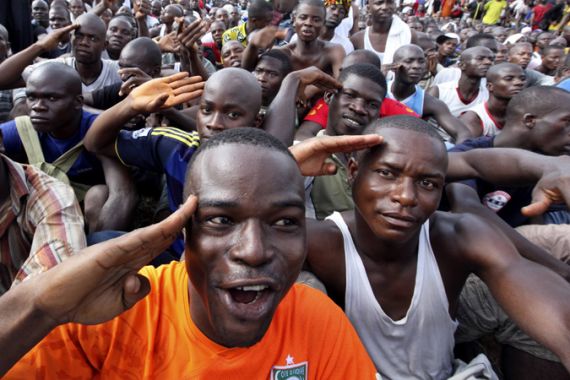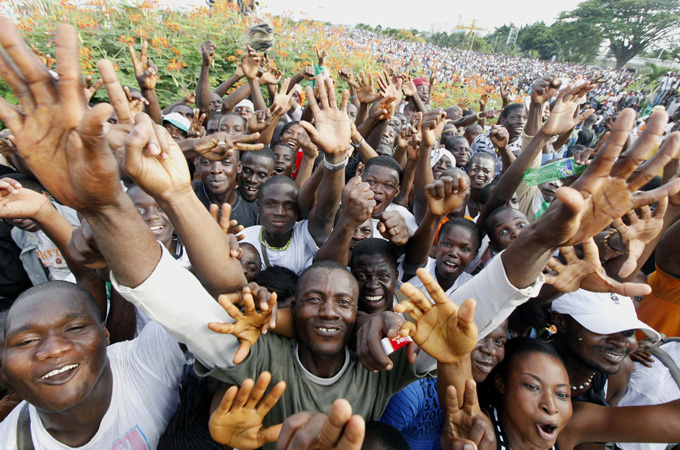Future scenarios for Cote d’Ivoire
Prospects for an end to the stand-off seems imminent but what are the future scenarios for the West African nation?

 |
| The immediate future of Cote d’Ivoire might very well be decided in next few days [Reuters] |
As rebel forces swoop over the countryside, taking towns and cities, claiming major victories for Ouatarra, the situation in Cote d’Ivoire is moving exceptionally fast. While a civil war continues to pan out, with thousands still displaced and skirmishes reported all over the country, the prospects for an end to the stand-off seems imminent. Al Jazeera’s Azad Essa speaks to Kofi Kouakou, a scenario planner at the University of the Witwatersrand in South Africa, about mapping future scenarios for the West African country.
Outline the possible scenarios for Cote d’Ivoire as it currently stands?
The late AU diplomatic envoys have not worked and are unlikely to do so. Instead of addressing the situation, the evoys have done little but irritate the key protagonists and make the situation boil slowly into a low grade war. Here are two rough-edge “plausible” scenarios:
1. Reconciliation and Peace – High road or best-case scenario
Laurent Gbagbo understands that he is finished but still can live and give up before it is too late for him and his minions. This could result in the formation of a national Truth and Reconciliation commission and the emergence of a “protracted” peace agreement for the next five years, extending Ouattara’s term by the time used by Gbagbo.
2. The Battle of Abidjan – Low road or worst-case scenario
The Forces Nouvelles, favourable to the Ouattara camp, move down south with their soldiers, crash the La Majorite Presidentielle (LMP) and its army, and capture Gbagbo in a bloody battle for Abidjan. Gbagbo is paraded naked in the streets of Treichville or Yopougon to ward off any potential LMP rebellion.
The current situation is not unique to Cote d’Ivoire. Similar events took place in Kenya, Zimbabwe, recently in Gabon as well, where presidents refused to leave after losing elections. What needs to change structurally to curtail this trend?
The resolution of the crisis in Cote d’Ivoire lies in the long-term future approach to solving fundamental governance requirement imperatives in Africa. I call this the ‘wild card’ scenario. Here it goes beyond the two leaders vying for power now. In this case, it lies in the amendment of the constitution of the country. The inherited and tweaked French colonial constitution is loaded with an unbalanced supremacy of the executive and the head of state. Like most nations in Africa, much of the power is the hand of one person – the president. He decides almost everything – from the macro economic resource allocation of the state, the nomination of the ministers, the elite, both political and technical, to the daily lives of Ivorians. It is both a place of power, resource allocation and wealth hoarding. So the executive becomes the refuge of those who wants both power and wealth.
This would mean curtailing ‘executive powers’ of future presidents in Cote d’Ivoire?
As we know in Africa, the state usually becomes the goose that lays the golden eggs and so to be rich, one has to become the head of state in order to be the custodian or the unlimited proprietor of the wealth of the country – usually in an unaccountable autocratic and ruling fashion. This unhealthy unbalance of the executive power needs to be diluted somehow to create “independent” power structures so that power is spread broadly across society and within legitimate and accountable institutions that serve all and not only the few. So a deeper and broader amendment of the constitution should allow a long-term resolution of the crisis and future crises in Cote d’Ivoire.”